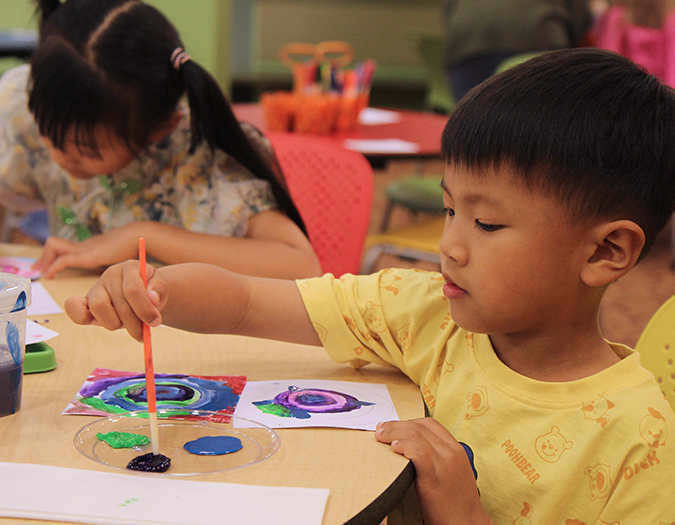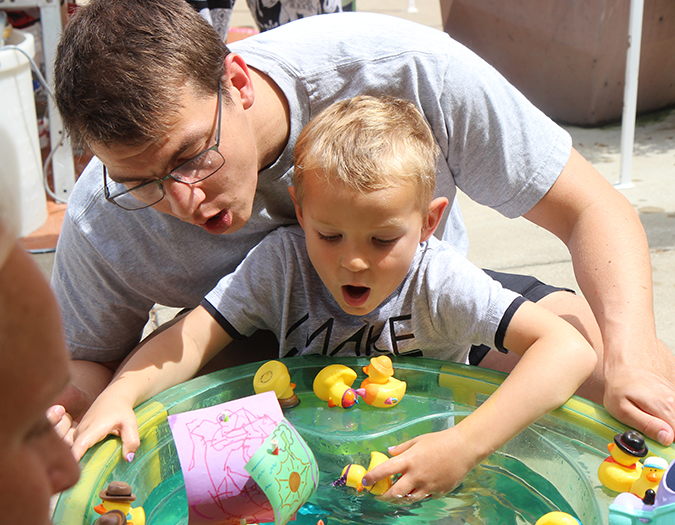 Learning to hold a fork helps a child with more than simply being able to eat in the school cafeteria. Research shows that the mastery of fine motor skills, like holding a fork, helps lay the foundation in young children for overall learning in school.*
Learning to hold a fork helps a child with more than simply being able to eat in the school cafeteria. Research shows that the mastery of fine motor skills, like holding a fork, helps lay the foundation in young children for overall learning in school.*
On the surface, that may not make sense, but early childhood researchers point out that a child’s hand needs to be strong and coordinated enough to hold a pencil steady during classroom instruction, and mastering fine motor skills helps children gain independence, boosts their creativity and encourages exploration.
 “Here at the library, we love to highlight that fingerplays help with fine motor skills, as does playing with playdough, cutting with safety scissors, building with blocks, putting together puzzles and using crayons. These are activities all children can do at home and in child care centers,” said Sarah Howard, youth and community services manager at the Daniel Boone Regional Library.
“Here at the library, we love to highlight that fingerplays help with fine motor skills, as does playing with playdough, cutting with safety scissors, building with blocks, putting together puzzles and using crayons. These are activities all children can do at home and in child care centers,” said Sarah Howard, youth and community services manager at the Daniel Boone Regional Library.
The library offers many options to help you encourage your child to develop their fine motor skills. Our in-person children’s programs often include a craft, and you can borrow one of our early learning kits to take home. Each library also has an interactive play area which is enhanced with a rotating set of traveling “discovery stations.”
Children’s team library associate Dana Bocke manages the discovery stations. “We have a set of discovery toys which go on a three-month journey around the service area — first to Fulton, then Ashland and then Holts Summit. Each toy focuses on a different set of skills like vocabulary, imaginative play or fine motor skills. One of the stations currently making the rounds has lacing trees and birds which are excellent examples of toys to develop fine motor skills, as well as problem solving,” said Bocke.
So during these winter months, go on a field trip to the library or bookmobile and check out an early learning kit, take your child to a program (see a complete list) and explore the children’s activity area. Your child will have fun practicing their fine motor skills while engaged in a playful activity, and will be gaining useful skills that will help them in school.
| Age Range | Fine Motor Skill Activities* |
|---|---|
| 0-6 months |
|
| 3-6 months |
|
| 6-9 months |
|
| 9-12 months |
|
| 1-2 years |
|
| 3-4 years |
|
| 4-5 years |
|
*Source: Fine Motor Skills, reviewed Sept. 7, 2023, Cleveland Clinic Health Library
